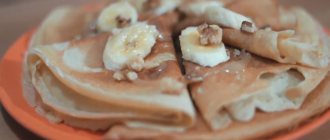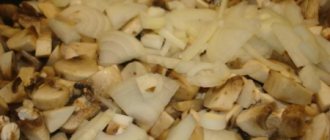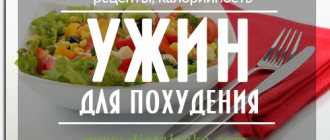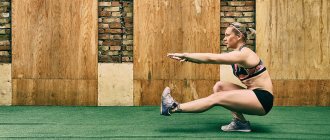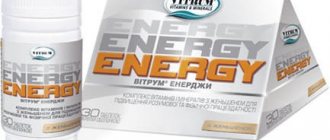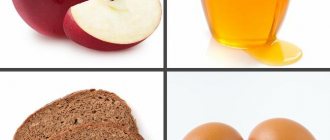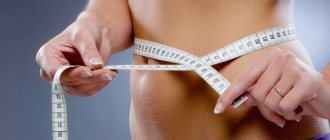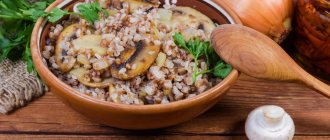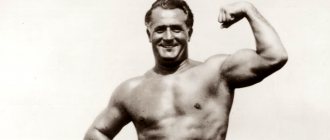To maximize your results in the gym you must focus on your diet as eating the wrong foods can be detrimental to your bodybuilding goals.
This article explains what to eat and what to avoid when bodybuilding and provides a one-week menu plan.
Nutrition for Bodybuilding – What to Eat and What to Avoid
Bodybuilding Basics
Bodybuilding differs from powerlifting or Olympic lifting in that the athlete is judged on appearance rather than physical strength.
Thus, bodybuilders strive to develop and maintain a well-balanced muscular physique without excess body fat.
To do this, many bodybuilders start with an off-season followed by a seasonal eating pattern called the bulking phase and the conditioning phase, respectively.
During the bulking phase, which can last from several months to several years, bodybuilders eat high-calorie, protein-rich foods and gain weight intensively with the goal of building as much muscle as possible ().
The next proportion improvement phase focuses on losing as much fat as possible while maintaining the muscle mass developed during the bulking phase. This is achieved through specific changes in diet and exercise over a period of 12-26 weeks ().
Summary:
Training and diet in bodybuilding are usually divided into two phases: gaining mass and improving proportions. The goal of the bulking phase is to build muscle mass, while the bulking phase is designed to maintain muscle while losing fat.
Health benefits of bodybuilding
There are several health benefits of bodybuilding.
To maintain and build muscle, bodybuilders often train by performing both resistance and aerobic exercises.
Resistance training increases muscle strength and size. Muscle strength is highly correlated with a lower risk of death from cancer, heart and kidney disease, and several other dangerous diseases ().
Aerobic exercise, which bodybuilders do regularly to reduce body fat, improves heart health and significantly reduces the risk of developing or dying from cardiovascular disease, the number one killer in many developed countries (,).
Apart from exercise, bodybuilders also focus on their nutrition.
With careful planning, bodybuilders can eat in a way that not only supports their efforts in the gym, but also maintains their health.
By following a healthy diet that includes nutrient-dense foods from all food groups in appropriate amounts, you can significantly reduce your risk of chronic disease ().
Summary:
Bodybuilders train regularly and can eat well-planned, nutrient-dense diets that are very beneficial to their health.
Consume olive oil in moderation every day
Those who exercise regularly and want to stay in good shape usually watch their diet. But olive oil is just the product that can be added to food without fear.
It contains:
- vitamins A, C, D, E;
- various omega acids;
- minerals;
- antioxidants and other beneficial substances and microelements.
Olive oil is added to various dishes to improve the taste - for example, it is often used as a salad dressing.
One of the options for a healthy and healthy breakfast using olive oil is toast with ham and a salad of fresh tomatoes with the addition of 5-10 ml of Extra Virgin oil.
Calorie and macronutrient needs
The goal for competitive bodybuilders is to increase muscle mass during the bulking phase and reduce body fat during the improvement phase. Therefore, you consume more calories in the bulking phase than in the improving proportions phase.
How many calories do you need?
The easiest way to determine how many calories you need is to weigh yourself at least three times a week and write down what you eat.
If your weight remains the same, the number of calories you consume each day are your maintenance calories—in other words, you are not losing or gaining weight, but maintaining it.
During the muscle building phase, it is recommended to increase your calorie intake by 15%. For example, if your maintenance calories are 3,000 per day, you should eat 3,450 calories per day (3,000 x 0.15 = 450) during the bulking phase ().
When you move from the bulking phase to the improving proportions phase, you need to reduce the number of calories you consume by 15%, which means that you will consume 2550 calories per day instead of 3450.
As you gain weight in the bulking phase or lose weight in the improving phase, you will need to adjust your calorie intake at least every month to account for changes in weight.
Increase your calorie intake as you gain weight in the bulking phase and decrease your calorie intake as you lose weight in the bulking phase to continue your progression.
During any phase, it is recommended not to lose or gain more than 0.5-1% of your body weight per week. This will ensure that you don't lose too much muscle during the bulking phase or gain too much fat during the bulking phase ().
Macronutrient ratio
Once you determine your caloric intake, you can determine your macronutrient ratio, which is the ratio between your protein, carbohydrate, and fat intake.
Unlike the difference in your calorie needs between bulking and bulking phases, your macronutrient ratio does not change.
Protein and carbohydrates contain four calories per gram, while fat contains nine.
It is recommended that you receive (, ):
- 30-35% of your calories from protein
- 55-60% of your calories from carbohydrates
- 15-20% of your calories from fat
Below is an example of the ratio for both the mass gain phase and the proportion improvement phase:
| Mass gain phase | Proportion improvement phase | |
| Calories | 3450 | 2550 |
| Protein (grams) | 259-302 | 191-223 |
| Carbohydrates (grams) | 474-518 | 351-383 |
| Fat (grams) | 58-77 | 43-57 |
These are general guidelines, so it is best to consult with a professional nutritionist to determine your individual needs based on your goals.
Summary:
Recommended calorie intake, but not your macronutrient ratio, differs between bulking and bulking phases. To account for weight changes, adjust your calorie intake every month.
Thursday: protein yogurt
If you don't have time to prepare breakfast, this is not a reason to skip it. Make your own protein yogurt in just two minutes. Yogurt contains many beneficial probiotics that help promote proper bowel function.
Ingredients:
- ¾ cup yogurt;
- protein powder.
Calories: 226
- proteins: 20-35 g;
- fats: 7 g;
- carbohydrates: 12 g.
Nutrition in bodybuilding: do's and don'ts
Just like training, diet is an important part of bodybuilding.
Eating the right foods in the appropriate amounts provides your muscles with the nutrients they need to recover from workouts and gain muscle mass and strength.
Conversely, eating the wrong foods or not eating enough of the right ones will lead to less than good results.
Here are the foods you should focus on and the foods you should limit or avoid entirely:
What foods should you eat?
The food you eat should not differ in the phases of gaining weight and improving proportions.
Here are the foods that should be included in your diet ():
- Meat, poultry and fish : Beef and pork tenderloin, lamb, chicken breast, salmon, mackerel and cod.
- Dairy products : Yogurt, cottage cheese, skim milk and cheese.
- Grains : Bread, cereals, crackers, oatmeal, buckwheat, quinoa, popcorn and rice.
- Fruits : Oranges, apples, bananas, grapes, pears, peaches, watermelon and berries.
- Starchy vegetables : Potatoes, corn, green peas, green beans and cassava.
- Vegetables : Broccoli, spinach, green leafy vegetables, tomatoes, green beans, cucumber, zucchini, asparagus, peppers and mushrooms.
- Seeds and nuts : Almonds, walnuts, sunflower seeds, chia seeds and flax seeds.
- Legumes : Chickpeas, lentils, beans and beans.
- Oils : Sunflower oil, olive oil, flaxseed oil and avocado oil.
Products whose consumption should be limited
Although you should include a variety of foods in your diet, there are some that you should limit your consumption of.
These include:
- Alcohol : Can negatively impact your ability to build muscle and lose fat, especially if you consume it in excess ().
- Added Sugar : High in calories but few nutrients. Foods high in added sugars include candy, cookies, donuts, ice cream, cakes, and sugar-sweetened drinks such as sodas and sports drinks ().
- Fried foods : May contribute to inflammation and, if consumed in excess, disease development. Examples of fried foods include fried fish, fried potatoes, french fries, fried onions, and fried meat ().
In addition to limiting your intake, you can also avoid certain foods before heading to the gym that can slow down your digestion and cause stomach upset during your workout.
These include:
- High-fat foods : Fatty meats, high-fat foods, and rich sauces or cream.
- High-fiber foods : Beans and cruciferous vegetables such as broccoli or cauliflower.
- Carbonated drinks : Carbonated water or drinks.
Bodybuilding Supplements
Many bodybuilders take dietary supplements, some of which are beneficial and others not (,).
The best supplements for bodybuilding include:
- Whey Protein : Consuming whey protein isolate or concentrate is an easy and convenient way to increase your protein intake.
- Creatine : Provides your muscles with the energy they need to perform an extra rep or two. Although there are many brands of creatine, look for creatine monohydrate as it is the most effective ().
- Caffeine : Reduces fatigue and allows you to train harder. It is found in pre-workout supplements and in coffee or tea ().
Multivitamin and mineral supplements may be helpful if you are limiting your calorie intake to reduce body fat during the improvement phase.
Summary:
Include a variety of nutrient-rich foods from all food groups in your diet. Avoid or limit your intake of alcohol, foods with added sugars, and fried foods. In addition to your diet, whey protein, creatine and caffeine may be useful supplements.
Tuesday: Homemade protein shake
Most cocktails available in stores contain large amounts of sugar, so it is much better to make them yourself.
Ingredients:
- Water or milk (cow's, almond, soy);
- 2 spoons of protein powder;
- 5 tablespoons of any nut butter;
- ½ cup oatmeal.
Mix all products in a blender until smooth.
Calories: 513
- proteins: 20-60 g (depending on protein powder);
- fats: 16 g;
- carbohydrates: 33 g.
Sample menu for the week
Bodybuilding diets are usually described as restrictive, repetitive and boring.
Traditional bodybuilding diets typically contain limited food choices and little variety among and within food groups, which can result in insufficient intake of essential minerals and vitamins ().
For this reason, it is important to add variety to your diet to ensure your nutritional needs are met - especially during the proportion improvement phase when you are eating a limited amount of calories.
Each meal and snack should contain 20-30 grams of protein for optimal muscle building support ().
When you are in the bulking phase, your food intake level will be much higher than when you are in the improving proportions phase.
You can enjoy the same foods in the bulking phase as you do in the bulking phase—just in smaller quantities.
Here is an example of a weekly menu for bodybuilding:
Monday
- Breakfast : Omelette with mushrooms and oatmeal.
- Snack : Low-fat cottage cheese with blueberries.
- Lunch : Meat sandwich, white rice and broccoli.
- Snack : Protein shake and banana.
- Dinner : Salmon, buckwheat porridge and asparagus.
Tuesday
- Breakfast : Protein pancakes with syrup, peanut butter and raspberries.
- Snack : Hard-boiled eggs and an apple.
- Lunch : Steak, sweet potato and spinach salad with vinaigrette.
- Snack : Protein shake and walnuts.
- Dinner : Navy pasta using ground turkey.
Wednesday
- Breakfast : Chicken sausage with egg and fried potatoes.
- Snack : Greek yogurt and almonds.
- Lunch : Turkey breast, basmati rice and mushrooms.
- Snack : Protein shake and grapes.
- Dinner : Mackerel, brown rice and lettuce with vinaigrette.
Thursday
- Breakfast : Cooked ground turkey, egg, cheese and salsa in a whole grain tortilla.
- Snack : Yogurt with granola.
- Lunch : Chicken breast, baked potato, sour cream and broccoli.
- Snack : Protein shake and mixed berries.
- Dinner : Stir-fry with chicken, egg, brown rice, broccoli, peas and carrots.
Friday
- Breakfast : Blueberries, strawberries and vanilla Greek yogurt with overnight oats.
- Snack : Jerky and mixed nuts.
- Lunch : Tilapia fillet with lime juice, black and pinto beans and seasonal vegetables.
- Snack : Protein shake and watermelon.
- Dinner : Beef with corn, brown rice, green peas and green beans.
Saturday
- Breakfast : Cooked ground turkey and egg with corn, bell pepper, cheese and salsa.
- Snack : Canned tuna with crackers.
- Lunch : Tilapia fillet, baked potatoes and bell pepper.
- Snack : Protein shake and pear.
- Dinner : Diced beef with rice, black beans, bell peppers, cheese and pico de gallo.
Sunday
- Breakfast : Boiled eggs and avocado on bread.
- Snack : Protein balls and almond butter.
- Lunch : Pork tenderloin slices with roasted garlic potatoes and green beans.
- Snack : Protein shake and strawberries.
- Dinner : Turkey meatballs, marinara sauce and Parmesan cheese with pasta.
Summary:
Eat a variety of foods and consume 20-30 grams of protein at every meal and snack.
Wednesday: Rice cakes with almond butter and banana
Brown rice is an excellent source of complex carbohydrates, and almond butter contains healthy fats, potassium, magnesium and calcium. The flatbreads can be prepared the day before so you can quickly eat your healthy breakfast in the morning and run to work or workout.
Ingredients:
- 2-3 rice cakes;
- 3 tablespoons almond oil;
- 1 chopped banana.
Calories: 511
- proteins: 16 g;
- fat: 24 g;
- carbohydrates: 56 g.
What to remember
For the most part, bodybuilding is a lifestyle that comes with certain health benefits, but there are some things you need to know before you start bodybuilding.
Low levels of body fat can negatively impact sleep and mood
To prepare for bodybuilding competitions, competitors achieve extremely low body fat levels, with men and women typically achieving body fat levels of 5-10% and 10-15%, respectively (, ).
This low level of body fat, coupled with low calorie intake, has been shown to reduce sleep quality, negatively impact mood, and weaken the immune system in the weeks leading up to competition and even several weeks after (, , , ).
Consequently, it can reduce your ability to function every day, negatively affect those around you, and make you more susceptible to illness.
Risks of using anabolic steroids
Many, but not all, muscle-building supplements are promoted by bodybuilders who use drugs that increase physical strength, endurance, and muscle mass, such as anabolic steroids.
This is misleading to many bodybuilders who believe that they can achieve the same results by taking advertised supplements.
In turn, many bodybuilders, especially beginners, have unrealistic expectations of what can be achieved naturally, which can lead to dissatisfaction with their body and ultimately the desire to try anabolic steroids (,).
However, anabolic steroids are very harmful to health and are associated with several risks and side effects.
The use of anabolic steroids may increase the risk of developing cardiovascular disease, reduce fertility, and lead to mental and behavioral disorders such as depression (, , ,).
Summary:
When preparing for a competition, make sure you are aware of possible side effects. Also, understand that the physiques you see advertised for bodybuilding supplements generally cannot be achieved without the use of anabolic steroids, which are very harmful.
Summarize
- In bodybuilding, proportionately developed large muscle mass together with a small amount of fat on the body is assessed, and not athletic performance.
- Achieving the desired look of a bodybuilder requires regular training and special attention to diet.
- A bodybuilding nutrition program is typically divided into a bulking phase and an improvement phase, during which your calorie intake will change while your macronutrient ratio remains the same.
- Your diet should include nutrient-dense foods and 20-30 grams of protein with every meal and snack.
- You should also limit your intake of alcohol, heavily fried foods, and foods high in sugar.
- This ensures that you get all the important nutrients your body needs to build muscle mass and improve your overall health.
Tags: Bodybuilding
- Related Posts
- 10 Foods That Increase Keratin Levels in the Body
- 9 bitter foods that are good for your health
- Proper nutrition for school-age children
« Previous entry


